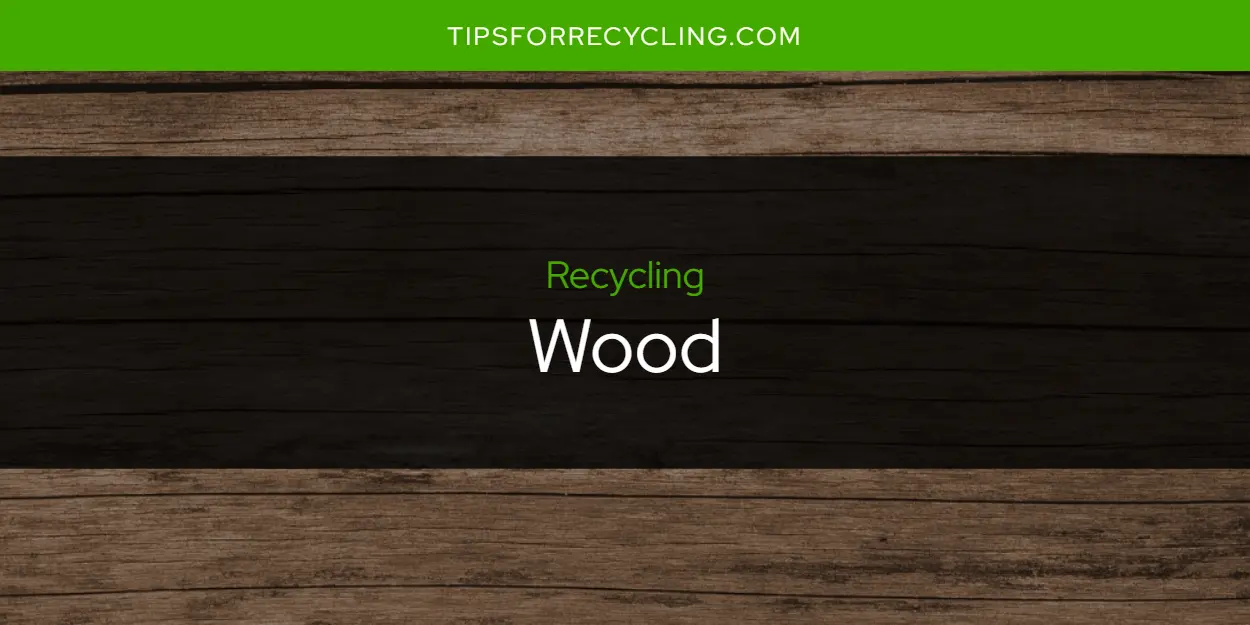Is Wood Recyclable?

The answer is yes, you can recycle wood. Wood is a natural resource that can be reused and recycled to create new items. With the right process, wood scrap can be turned into a useful product, such as furniture and other decorative items. In addition, recycling wood helps reduce the amount of waste that goes into landfills, reducing pollution and helping preserve the environment.
But what types of wood are recyclable? Generally speaking, all hardwoods from trees such as oak, walnut, mahogany, teak and cherry can be recycled. Softwoods from cedar and pine trees can also be recycled but may need some additional processing when compared to hardwoods because they are softer in nature. However, pressure-treated woods should not be recycled because they contain chemicals that could potentially harm the environment if released into the atmosphere.
See the below map for locations where you can recycle wood.
Absolutely! There are various ways to make money recycling wood – from selling it online or at flea markets to creating your own business where you buy and sell reclaimed lumber or even build custom furniture pieces with it. You could also offer your services on websites like Craigslist or Upwork where homeowners and businesses hire people for various handyman tasks such as removing old wooden fences or decks.
In addition, many retail stores now accept donations of used wood items such as furniture or doors in exchange for store credit or coupons which you can use to purchase new products from their store. And if you’re creative enough, you might even find a market for custom wood art pieces that you’ve created out of recycled materials!
Similarly, see if you can recycle wooden pencils.
Recycled wood has many uses – from building furniture pieces like tables and chairs to creating outdoor structures like fences and decks. It’s also commonly used in flooring applications due to its strength and durability; however there are some considerations one should take before using recycled wooden planks for this purpose as certain types may contain toxins from their former uses (such as treated lumber).
In addition to these practical uses, upcycling old woods has become quite popular lately as people have started getting creative with their projects - turning them into works of art by painting on them or carving interesting patterns out of them! Furthermore, salvaged timber is being used more often these days due to its rustic aesthetic appeal; barns are being converted into homes while shops are using reclaimed lumber for a unique look that customers love.
Similarly, see if you can recycle wooden chopsticks.
Local hardware stores usually carry some sort of salvaged lumber but depending on where you live it might not always be available in the quantity needed for larger projects so it’s best to call ahead and check inventory before making any trips out of town. If there isn’t anything available near your home then don’t worry – there are plenty of online resources available where one can buy quality salvaged timbers at reasonable prices (just make sure to do your research before purchasing anything off the internet!).
Similarly, see if you can recycle wood considered.
One obvious benefit of recycling wood is helping preserve our natural resources while reducing pollution levels in landfills due to less need for new timber production (as well as fewer trees being cut down). Additionally, using salvaged timber reduces costs significantly since most reclaimed materials come pre-cut meaning less time having to measure things out – this translates into lower overhead expenses for businesses who choose to use recycled woods in their operations! Finally, upcycling old woods adds character and charm which cannot easily replicated with new products making each project entirely unique!